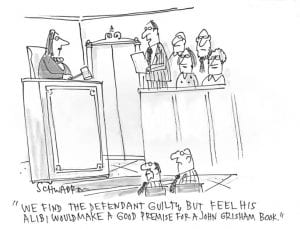 What makes a good read? Surprises and lots of them. OK, what do I mean by “surprises?” Surprises are out-of-the-blue moments that interrupt the flow of the novel and take it, or a character, in a different direction. Too many surprises and they are not surprises anymore. That’s why I only use a few, and only as necessary to enhance the plot. In my novel, the end chapters reference the kind of surprises that we enjoyed as children at Christmas time. Something like this;
What makes a good read? Surprises and lots of them. OK, what do I mean by “surprises?” Surprises are out-of-the-blue moments that interrupt the flow of the novel and take it, or a character, in a different direction. Too many surprises and they are not surprises anymore. That’s why I only use a few, and only as necessary to enhance the plot. In my novel, the end chapters reference the kind of surprises that we enjoyed as children at Christmas time. Something like this;
[“Thank you,” says Rian. “I have another surprise for you too.”
“Oh?”
“Please close your eyes.”
My senses peak. I hear the slap, slap of halyards against the yacht mast and I’m reminded of the tap, tap of Sweetman’s cane at The Rock Hotel, though that was a lifetime ago.
Seagulls squawk. I’m getting hot and the anticipation is killing me. Then, high heels come clacking across the sandstone terrace, getting louder. A shadow darkens my eyes and a tender arm wraps around my neck. The kiss is sweet and soft and the air wafts with perfume; a sexy mix of jasmine and vanilla. My mind is alive with intrigue.
“Who?” I ask.
“It’s been a while,” she replies. The voice is lilting and familiar, yet I can’t place it. I dive inside my memory banks, but they are empty except for the hint of a French accent. Was she in Paris? Damn, I used to recall names with ease and am about to ask for a clue when she says, “You can open your eyes now.”
I look up. Golden hair cascades in the sun and her face is shadowed under an old straw hat, its tattered red ribbon fluttering in the breeze. My eyes adjust and my mind catches up.
“Claudine, what a surprise and, I must say, a pleasure too.”
“My name is now Chloé Dupont,” she laughs.
“It’s been a long time. You’ve changed,” I add.
She smiles and wags a finger asking, “How have I changed?”
“You look more beautiful than ever, and happier too.” She giggles and kisses me again.
“Another glass please, Rian,” I say. “Let’s celebrate Watershed with our new guest, the lovely Chloé Dupont.” The day seems brighter. She rests her glass, tosses her hair and hands me a parcel.
“A small gift for you,” she chuckles.
“You shouldn’t have,” I protest.
Her reply puts me in my place when she says, “It’s better to give than receive.” I like that and must remember it.
The Christmas wrapping is enticing and topped with a large, yellow bow.
“I wonder what this could be?” I reply, shaking it in the way I did as an excited young boy on Christmas Eve. I loved to see the present wrapped and stacked beneath the family tree, and try to guess the contents of each one—perhaps a toy rifle for me to fight off the enemy, or a sword to cut off their heads? Better still, the whole outfit—a Lone Ranger suit, complete with mask and pistols? I made several attempts to discover the wrapped secrets. My parents never approved, but Chloé encourages me.
She laughs, “Can you guess what it is?”
“It feels solid,” I say. “A strange shape, rounded at each end.”
“Just a small keepsake,” she adds.]
I guess you want to know what the surprise is? Aha, wait for the book 🙂


 What makes a good read? Surprises and lots of them. OK, what do I mean by “surprises?” Surprises are out-of-the-blue moments that interrupt the flow of the novel and take it, or a character, in a different direction. Too many surprises and they are not surprises anymore. That’s why I only use a few, and only as necessary to enhance the plot. In my novel, the end chapters reference the kind of surprises that we enjoyed as children at Christmas time. Something like this;
What makes a good read? Surprises and lots of them. OK, what do I mean by “surprises?” Surprises are out-of-the-blue moments that interrupt the flow of the novel and take it, or a character, in a different direction. Too many surprises and they are not surprises anymore. That’s why I only use a few, and only as necessary to enhance the plot. In my novel, the end chapters reference the kind of surprises that we enjoyed as children at Christmas time. Something like this; Waiting is a difficult game and not many of us are built to handle it well. “Waiting for what?” you might ask. It could be waiting for your next plot idea, next book concept, or waiting for a literary agent to get back to you after a full manuscript request. So, to ease the pain, here are a few suggestions:
Waiting is a difficult game and not many of us are built to handle it well. “Waiting for what?” you might ask. It could be waiting for your next plot idea, next book concept, or waiting for a literary agent to get back to you after a full manuscript request. So, to ease the pain, here are a few suggestions: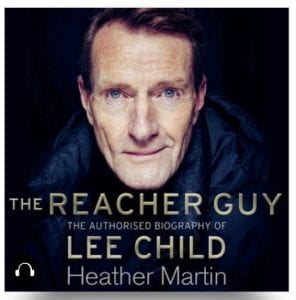 Author Lee Child has published 25 thrillers, featuring Jack Reacher, which have sold more than 100 million copies worldwide.So when he says The Day Of The Jackal is “a year-zero, game-changing thriller, one of the most significant of all time” you listen.
Author Lee Child has published 25 thrillers, featuring Jack Reacher, which have sold more than 100 million copies worldwide.So when he says The Day Of The Jackal is “a year-zero, game-changing thriller, one of the most significant of all time” you listen.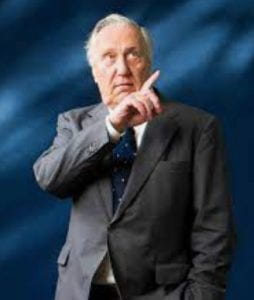 set in 1963, about an Englishman hired to assassinate the French president at the time, Charles de Gaulle. But publishers were not interested. After all de Gaulle was very much alive, the mission had obviously failed, so where was the suspense? That, says Child, is the key to its success.
set in 1963, about an Englishman hired to assassinate the French president at the time, Charles de Gaulle. But publishers were not interested. After all de Gaulle was very much alive, the mission had obviously failed, so where was the suspense? That, says Child, is the key to its success.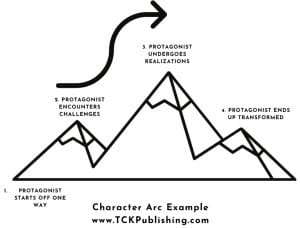
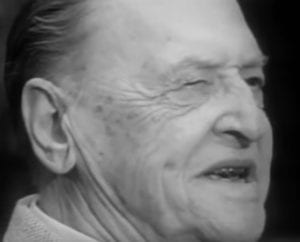 “My greatest satisfaction is to think of a story and write it as I want to see it in my mind’s eye.” [Somerset Maugham]
“My greatest satisfaction is to think of a story and write it as I want to see it in my mind’s eye.” [Somerset Maugham]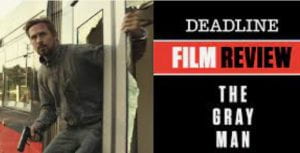 One review of
One review of  Motive is the glue that holds a thriller together, and keeps the plot racing to its conclusion.
Motive is the glue that holds a thriller together, and keeps the plot racing to its conclusion.